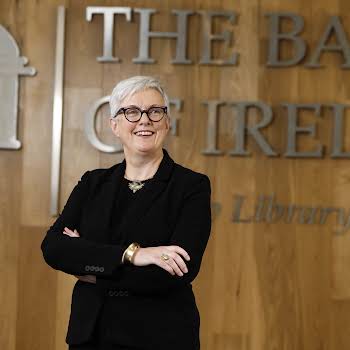
By Erin Lindsay
29th Sep 2020
29th Sep 2020
A new Bill addressing assisted dying for terminally ill people will be presented to the Dáil this week
This week, the Dáil will debate a new bill that, if passed into law, will legislate for assisted dying in Ireland.
The bill, which has been introduced by People Before Profit TD Gino Kenny, will allow citizens with terminal illnesses the right to die with medical assistance.
The issue of assisted dying is one with many ethical and moral dilemmas, which are likely to be discussed at length in the Dáil. Here’s what you need to know.
What is assisted dying?
Assisted dying is the act of providing medical assistance to those with terminal illnesses who wish to end their life.
Assisted dying differs from euthanasia, which is when a person intentionally ends another person’s life to relieve suffering when they are ill. With assisted dying, the person suffering from terminal illness has to ultimately end their life themselves.
Helping someone end their life is currently illegal under Irish law. Taking your own life is not.
What is in this bill?
The bill being presented before the Dáil today is named the Dying with Dignity bill, and its purpose is to “make provision for the assistance in achieving a dignified and peaceful end of life” in those who wish to die.
There are 15 sections in the bill, laying out the rules and criteria around who could be assisted in their death and who could provide medical assistance to them to do so.
According to these criteria, a person can only seek assisted dying if they have a terminal illness. This is defined as one which is “incurable, progressive, and… which cannot be reversed by treatment”. This diagnosis must be verified by two medical practitioners.
Of these practitioners, one must be independent – the other will most likely be the person’s doctor. The independent practitioner cannot be a relative, partner or colleague of the other practitioner.
The practitioners would also assess the person’s capacity to make the decision about ending their life. Those who cannot understand or retain information about ending their life, or who cannot communicate their decision, would not be allowed to make the request.
The person seeking assisted dying must be over 18 and must be a resident in Ireland for at least one year.
The person who wishes to die must have the capacity to do it themselves. If they meet this criteria, they must sign a declaration in the presence of a witness. This witness would have to be someone that would not benefit from the dying person’s estate once they had passed away.
Once two weeks have passed since the declaration, a doctor could then prescribe substances to aid the person in ending their life. This time period could be reduced to six days if both medical practitioners believed that the person’s death from illness may occur within one month of the declaration.
A medical practitioner could provide these substances to the person and help them to administer them safely. At all times, the medical practitioner would have to take records, including a final declaration when the assisted dying has been completed. The medical practitioner would have to confirm that the ill person did not revoke their decision. If the person did not wish to take the substances, they must be immediately taken away.
Do other countries have this kind of law in place?
Yes, many other countries have some form of assisted dying available by law. The Netherlands and Switzerland are the most well-known worldwide for their allowances for assisted dying, and have some of the most liberal approaches to the practice. In the Netherlands, for example, both euthanasia and assisted dying are legal if the patient is enduring unbearable suffering and there is no prospect of improvement. Anyone from the age of 12 can request this, but parental consent is required if a child is under 16.
A number of US states allow assisted dying, such as California, Colorado and Hawaii. In Australia, the region of Victoria also allows it.
What are some of the arguments for and against assisted dying?
Last year, an Amárach/Claire Byrne Live poll for TheJournal.ie found that 55% of people think that assisted suicide should be legal in Ireland, with 22% of people opposed.
Those in favour of assisted dying argue that people should be allowed to choose how and when they end their lives, especially if a person wants to reduce their suffering due to a terminal illness. They argue that if a person is to die from this illness anyway, they should be able to avoid unnecessary pain and mental stress and end their life in a more peaceful way.
Those against the practice worry that the process may be open to abuse or manipulation. There are fears that those who are vulnerable in their last stages of life could be coerced into making the decision to end their life.
There are also those who argue that introducing assisted dying could be a ‘slippery slope’ into similar practices that extend beyond terminally ill patients – for example, to those with mental or physical disabilities.
What will happen with the Bill this week?
On Thursday, TD’s will debate the Dying with Dignity bill, and then vote on whether it should progress to committee stage next week.
Read more: ‘I was completely annihilated’: The toxic truth about ‘supportive’ online mummy groups
Read more: Has the pandemic changed how we deal with ageing?
Read more: Five ways to improve nutrition in order to help reduce and relieve stress























